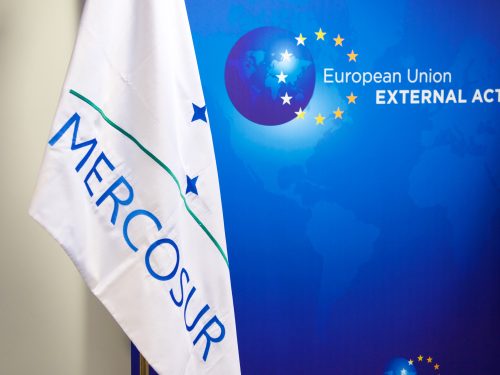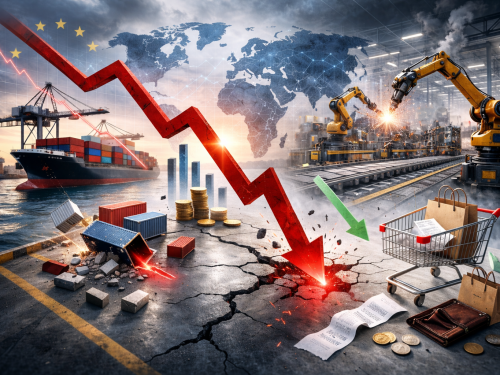News
Share on
On the occasion of the 7th Franco-Italian Economic ForumConfindustria and MEDEF launch a joint appeal at European summits: Europe risks losing its economic and geopolitical centrality if it does not act decisively to boost its industrial competitiveness.
A high-profile event featuring the President of the European Commission Ursula von der LeyenThis confirms the centrality of the issues addressed and the strong interest of the European institutions in supporting a renewed continental industrial agenda.
In a historical moment marked by global tensions, energy instability and technological transformations, the two main industrial organisations of Italy and France call for a decisive change of pace in European policies. The European Union must make a crucial choice: return to being a global productive power or accept progressive decline.
Industrial decarbonisation must be driven by competitiveness - not sacrificed to it
La industrial decarbonisation is a necessary challenge, but must be approached with economic pragmatism. Confindustria and MEDEF express concern about the EU target of reducing emissions by 90% by 2040, in the absence of solid industrial guarantees. Without a credible plan, there is a risk of company relocation, disruption of production chains and growing social opposition to the ecological transition.
A critical factor is the cost of energy. With skyrocketing prices, the transition risks being unfeasible. Europe must guarantee energy prices competitive, stable and predictableand strengthen support for energy-intensive sectors. Central is also the recognition of nuclear energy as a key technology in the decarbonisation strategy, with a view to true technology neutrality.
On the carbon pricingThe need to maintain free emission allowances until the CBAM (Border Carbon Mechanism) is fully operational and effective is reiterated. ETS revenues must be reinvested in industrial decarbonisation in a transparent manner, avoiding misuse to fill public deficits.
From words to deeds: Europe must rebuild its defence
The return of war to the European continent calls for a rethinking of the role of industry in the security policy. Confindustria and MEDEF propose a new strategic doctrine based on a solid and expanding defence industrial base.
In particular, we call for the immediate adoption of theEuropean Defence Industrial Programme (EDIP) and a significant increase in defence investment in the coming Multiannual Financial Framework. To strengthen industrial cooperation between countries, rules on procurement, exports and capital requirements need to be harmonised. France and Italy, leaders in the defence and aerospace sectors, stand for lead this strategic transformationwith positive effects on employment, innovation and industrial growth.
A competitiveness-oriented EU budget is indispensable
The European industrial revival also passes through a bold, competitiveness-oriented EU budget. Confindustria and MEDEF propose a review of the current European financial architecture, which is too fragmented and bureaucratic, to make it capable of mobilising large-scale public and private investment, especially in digital, green and defensive transition.
The objective is clear: every euro invested must generate impactthrough regulatory simplification, strategic coherence and ex-ante evaluations. The two associations strongly reiterate that no new corporate taxes should be introducedeconomic actors cannot be asked to support financially and implement the industrial transformation of Europe at the same time.
Trade is power. It must be used.
In an increasingly competitive global environment, thestrategic use of international trade is indispensable to strengthen European positioning. The ratification of the EU-Mercosur Agreement represents a crucial test of the EU's credibility and economic openness. Likewise, it is urgent to finalise agreements with Australia, India and Indonesia.
In the face of changing transatlantic dynamics, European unity is fundamental to avoid marginalisation and strengthen its strategic autonomy. The time for naivety is over: Europe must act assertively.




